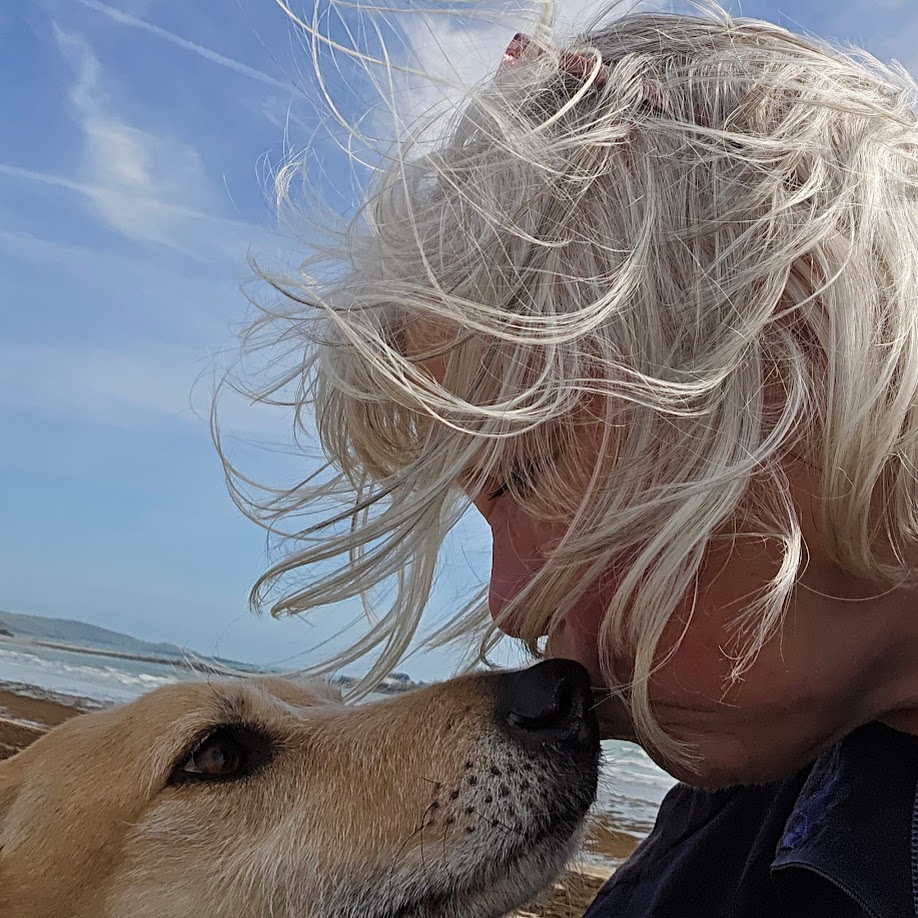Call / 07815 167247
Email [email protected]
Call / 07815 167247
Email [email protected]
![]()
Whaaat? You mean training doesn’t always run smoothly?
Of course it doesn’t, but what is important is what you do when that happens.
Do you give up?
Do you decide that this type of training does not work?
Do you change the type of training that you are doing?
Do you buy lots of very expensive tools that claim to do the job for you?
ALL of these are things that clients have done before they have come to me. I have lost count of the amount of times that I have been told ‘the training I have tried does not work’, ‘my dog won’t focus on me’, 'I have googled so many things I am confused', or been shown a pile of harnesses, leads and worse that clients have bought, tried and discarded, all claiming to help them solve the training issues they have.
A few weeks ago I saw a client whose dog pulls on the lead. They started with some great training when he was a puppy, took him along to some really good classes, did the practice and thought they had the perfect puppy. And then he started to pull. They thought the training had stopped working.
Actually what had happened was them getting different jobs, moving house, less time doing any training and adolescence had hit. Various harnesses and other tools were bought to solve the problem to no avail. They were getting frustrated and he was still pulling hard. Walks were tailored to have as little on lead time as possible.
You can see how it happens, but let’s not blame the training here. If fact let’s not blame anyone or anything because this is what having a dog is all about.
It is rarely a straight line from start to finish. It's more like a rollercoaster ride, with ups, downs, and unexpected twists along the way. Your dog may excel at certain tasks one day and struggle with them the next. It's important to remember that setbacks are a natural part of the learning process.
Here are my top 7 tips for what to do when your training stalls:
Literally stop what you are doing. When I talk to clients I often say that if you feel it is not working, or you feel any harm is being done, just stop.
Look at what is happening. Film yourself if you need to. Sometimes you are not doing what you think you are doing and watching it on video you will see things that you won’t feel or see when you are training. It may be that there are other influences you are not aware of. It may be that it is working, but there is frustration building.
Listen to your dog. Often people will say that their dog is bored. Unless we are talking about some training that is simply not difficult enough for the dog, most likely your dog is telling you something else. “You are not making sense.” “You are making me uncomfortable.” “You are being weird.” "This is too easy." "There is something over there that is taking my attention." Or many other things.
That’s a posh way of saying sort yourself out. Once you listen, you can adjust and set yourself up for success. Think about what you are trying to achieve, whether that is realistic, whethat that is too easy, whether the environment is against you, and set up to be the best for you and your dog.
Break down your behaviours into smaller more manageable steps. It’s like climbing a staircase, just take one step at a time.
Too much training is not good for anyone. There is no golden rule about what is the right amount, but taking a break can be good for everyone. That might be taking a couple of days off a week, or even just training two or three days out of a week. Or taking a week off. You need to find the right balance for you and your dog.
find the right balance for you and your dog.
Life is going to have glitches, and sometimes we have to accept that as our puppy turns into an adolescent we are going to struggle. Or as our rescue gains confidence other challenges may appear. Or as our dog gets into old age their abilities change. The best advice here is to enjoy the ride as it is never as long as we hope it is going to be.
Jess is nearly nine at time of writing this. Yesterday she stole a hat and paraded it around the house. I laughed as I now accept that the perfect dog is not something I either have or want. She’s just perfect the way she is.
How perfect are your dogs? What are their fun foibles? Let me know and let's celebrate our dogs together.